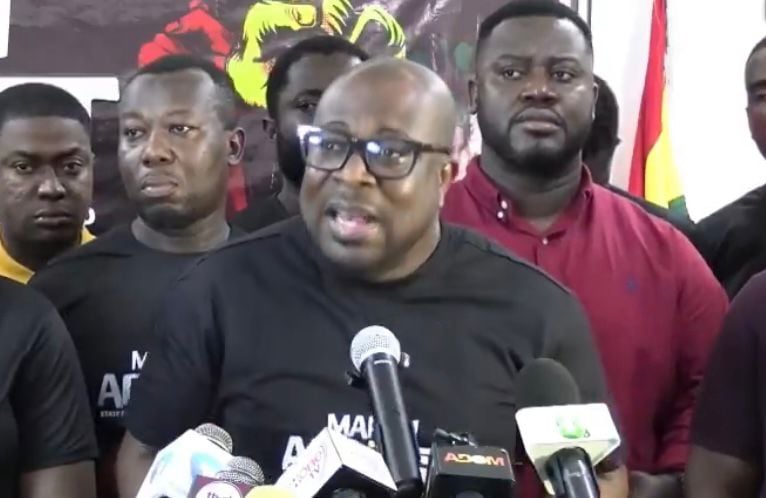The New Patriotic Party’s (NPP) National Youth Organizer, Salam Mustapha, has launched a scathing critique of the Mahama administration, accusing it of manipulating bail conditions as a weapon against political opponents and critics. Mustapha argues that this practice, employed primarily through institutions like the Economic and Organised Crime Office (EOCO), represents a dangerous perversion of justice, effectively transforming bail, a mechanism intended to ensure the accused’s appearance in court, into a punitive measure reserved for those deemed inconvenient by the ruling power. He warns that this selective application of the law, if left unchecked, poses a grave threat to the fundamental rights of all Ghanaians, regardless of their political allegiances.
Mustapha’s central argument revolves around the concept of “selective justice,” where legal processes are purportedly manipulated to target specific individuals or groups based on their affiliation or opinions. He paints a picture of a system where the power to grant or deny bail, and the conditions attached to it, are wielded arbitrarily, effectively silencing dissent and instilling fear among potential critics. This, he contends, undermines the core principles of fairness and equality before the law, principles upon which a just and democratic society rests. He implores Ghanaians not to be complacent, emphasizing that the erosion of these principles ultimately jeopardizes everyone’s freedoms, not just those currently targeted.
To illustrate his point, Mustapha cites the recent arrest and subsequent bail proceedings involving dancehall musician Shatta Wale. Wale’s case, in which he faced allegations of possessing a stolen Lamborghini, saw him initially granted bail at a staggering GHS10 million, later reduced to GHS5 million. Mustapha highlights this incident as a prime example of the excessive and seemingly politically motivated bail conditions he condemns. He asserts that such exorbitant amounts effectively function as a form of pre-trial detention, punishing individuals before they have even been found guilty of any crime. This not only violates the presumption of innocence but also raises concerns about the potential for abuse and intimidation through financial burden.
Mustapha underscores the importance of speaking out against these perceived injustices, emphasizing that his opposition stems not from partisan politics but from a fundamental belief in the principles of due process and fair treatment under the law. He recounts how his earlier criticisms of what he deems unreasonable bail conditions were dismissed by some as mere political posturing. He refutes this interpretation, asserting that his stance is rooted in principle, a commitment to upholding the integrity of the justice system irrespective of the individual’s political affiliation. His support for Shatta Wale, he explains, was a deliberate act of solidarity against this alleged misuse of legal procedures, a public demonstration of his disapproval of what he considers an abuse of power.
The NPP youth organizer’s appeal extends beyond the political sphere, calling upon civil society organizations, religious leaders, and ordinary citizens to join in condemning what he terms a “miscarriage of justice.” He emphasizes the collective responsibility to safeguard the principles of a fair and equitable legal system. He argues that silence in the face of such alleged abuses only emboldens those who wield power arbitrarily, allowing them to further erode the foundations of justice. He warns against the normalization of these practices, insisting that bail should not be allowed to become a backdoor form of punishment disguised as due process.
Mustapha’s call to action frames the issue as a critical juncture for Ghana’s democracy. He posits that the ongoing manipulation of bail conditions represents a slippery slope, a gradual erosion of fundamental rights that could ultimately lead to a system where the rule of law is subservient to political expediency. He stresses that the protection of these rights requires vigilance and active resistance from all segments of society, urging Ghanaians to stand united against what he perceives as a dangerous trend towards the politicization of the justice system. The future of Ghana’s democracy, he suggests, may hinge on the collective willingness to defend the principles of fairness, equality, and due process against those who would seek to undermine them.


